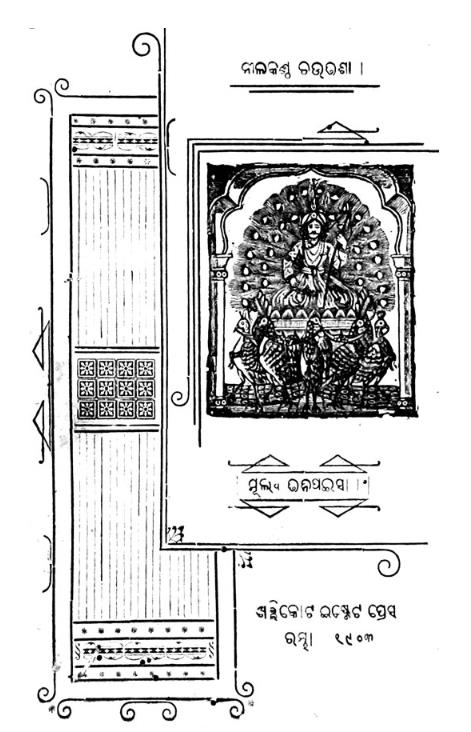Published in 1903, Nilakantha Chautisa is a seminal work by Hari Sharana Bhanja that has left an indelible mark on the realm of Odia literature. This collection of devotional poetry transcends the boundaries of mere literary achievement; it serves as a spiritual guide for the seeker and a celebration of the divine. With its intricate verses and profound themes, Nilakantha Chautisa evokes deep emotions while inviting readers into a quintessentially spiritual experience.
At the heart of Nilakantha Chautisa is the exploration of devotion, divine love, and the transformative power of faith. The title itself translates to “The Forty-Three of Lord Nilakantha,” referring to one of the glorious forms of Lord Shiva, celebrated within the pantheon of Hindu deities. Each verse acts as a pearl in a necklace, intricately connected through the overarching theme of longing for the divine and the transformative potential of spiritual exploration.
The opening verses capture the essence of a devotee’s yearning for a connection with Lord Nilakantha. The imagery employed by Bhanja echoes the soul’s search for fulfillment through divine love. In one poignant stanza, he likens himself to a butterfly, roaming the garden of life, searching for the bloom of love that symbolizes the presence of the divine. This intimacy transforms abstract worship into a tangible quest, making it relatable to anyone who has ever sought something greater beyond themselves.
Central to the work is the exploration of divine love, described as an intoxicating force that inebriates the heart of the devotee. Bhanja’s verses reveal a comfort in vulnerability, portraying the relationship between the seeker and the divine as a loving dialogue. Through metaphors of celestial dance and harmonious melodies, the poet emphasizes that this love is not just a passive experience; it demands active participation and surrender.
One of the most striking aspects of Nilakantha Chautisa is its inclusive vision of spirituality. Bhanja passionately advocates for embracing diverse paths to the divine. He acknowledges that while individual journeys may differ, the destination remains the same—unity with the divine. This message resonates strongly in contemporary society, where various faiths and beliefs strive for coexistence.
As the verses unfold, Bhanja gradually leads the reader toward themes of transcendence. He articulates the interior journey of self-discovery that occurs when one surrenders to the will of the divine. The imagery of darkness yielding to light serves as a metaphor for awakening and enlightenment, encouraging readers to pursue their spiritual paths diligently. The culmination of this journey is not merely personal growth but an inherent connection with the universe and the divine presence within it.
Books Info
| Books name | Nilakantha Chautisa / ନୀଳକଣ୍ଠ ଚଉତିଶା |
| Author | Hari Sharana Bhanja |
| No Of pages | 10 |
| Publisher | NA |
| Publication | 1903 |
| Printed At | Khallikot Eastet Press |
| Distributor | NA |

